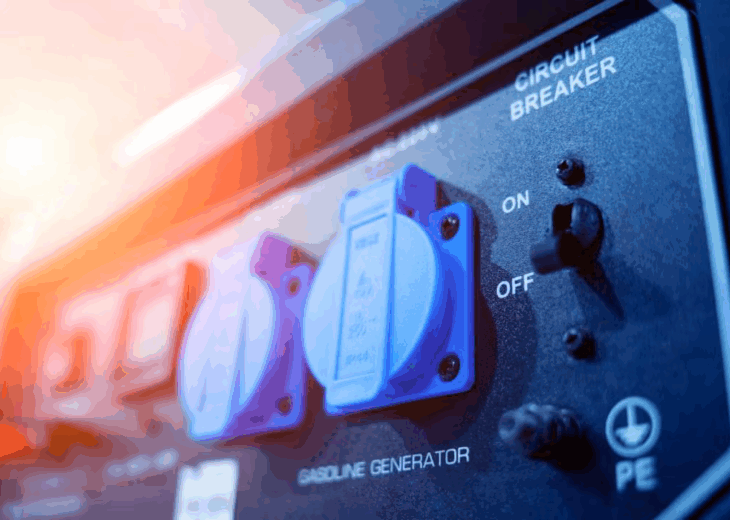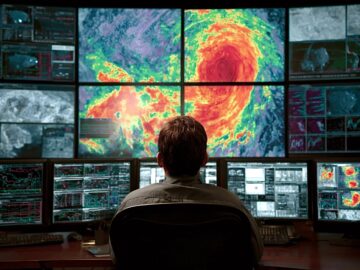Generator Safety Tips: Powering Through Hurricane Season

Florida homeowners face the annual challenge of preparing for storms when hurricane season approaches. While stocking up on supplies and reviewing evacuation routes are crucial, one often overlooked aspect of storm readiness is generator safety. Whether you’re dusting off an old generator or purchasing a new one, follow these essential generator safety tips to stay safe and powered up this hurricane season.
Understanding your power requirements is the first step in choosing the right generator. List the appliances and devices you plan to power during a storm and total their wattage. Choose a generator that can handle this load with some extra capacity for safety.
Generators produce dangerous levels of carbon monoxide, so it’s crucial to install battery-operated carbon monoxide alarms in your home and garage. These life-saving devices are available at most home improvement stores.
Familiarize yourself with your generator’s operation before a storm hits, and ensure it is properly grounded.
Regular maintenance ensures your generator works when you need it most. Conduct routine oil changes and test your generator periodically. Keep spare parts on hand, such as air filters and spark plugs, to avoid last-minute scrambles during an emergency.
Use your generator only in well-ventilated areas. Never operate a generator indoors or near windows and vents. Choose a dry, level area away from your home, such as an open shed. Consider using a generator tent for protection from the elements while ensuring proper ventilation.
Never refuel a generator while it is running. To prevent accidents, allow it to cool for a few minutes before refueling.
Focus on powering key appliances first. Connect items one at a time, ensuring the total wattage does not exceed the generator’s capacity. Your generator is designed to power critical needs, not your entire home.
Never plug your generator into a home outlet, as this can damage your generator. Use heavy-duty, outdoor-rated extension cords in good condition. If your generator is connected directly to your home’s electrical panel, ensure the main circuit breaker is turned off to prevent electricity from flowing back into power lines.
The exterior of a generator becomes extremely hot quickly. Always use protective gear when operating the generator and keep children at a safe distance. Ensure your hands and feet are dry before touching the generator and avoid standing in wet areas while operating it.
Before shutting down your generator, disconnect items one at a time to avoid sudden load changes and prevent damage. Cascade your power off one circuit breaker at a time.
Allow the generator to cool completely before storing. Take this opportunity to clean and inspect it for any signs of wear or damage. Store any remaining gasoline in approved containers in a well-ventilated area away from living spaces.
A well-maintained and properly used generator can be a lifeline during power outages, providing a sense of normalcy in challenging times. For more comprehensive information on protecting your home before, during, and after a storm, visit our Storm Center page.
Being prepared is more than having the right equipment—it’s about knowing how to use it safely. Mastering generator safety is an important step in your overall hurricane preparedness strategy.
Stay safe, stay prepared, and stay powered, Florida!
 Homeowners Insurance Florida
Homeowners Insurance Florida
Learn how to choose your homeowners insurance deductible. Compare flat vs. percentage options, see real examples, and decide what’s best.
 Florida Lifestyle
Florida Lifestyle
Learn the difference between a hurricane watch, warning, tropical storm alerts, and when your hurricane deductible applies.
 Homeowners Insurance Florida
Homeowners Insurance Florida
Learn the difference between a hurricane watch, warning, and tropical storm alerts — and how they can affect your insurance.